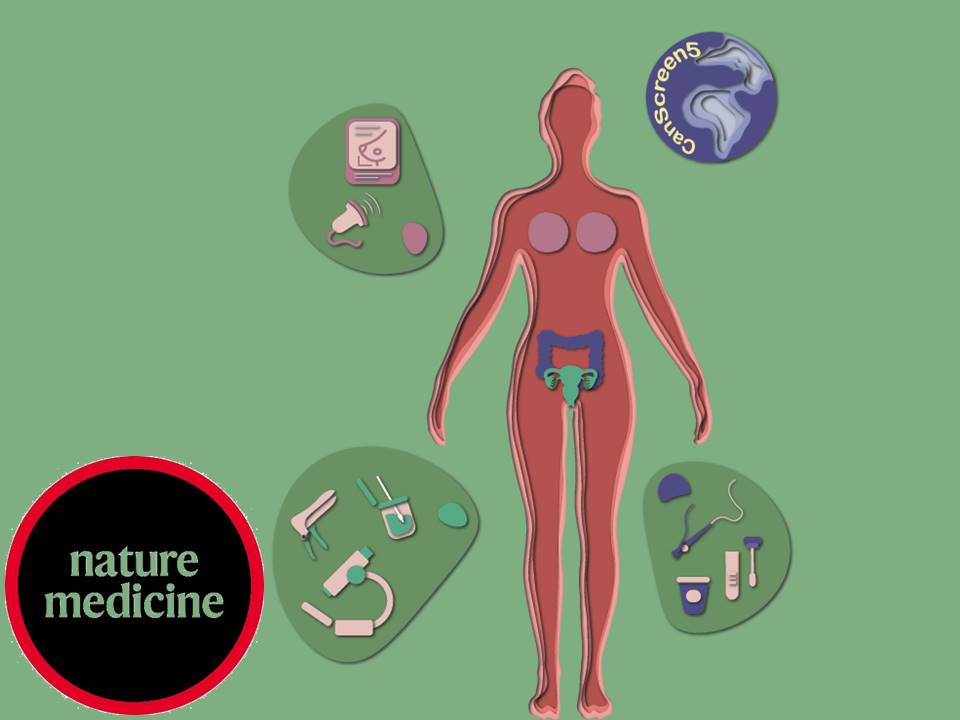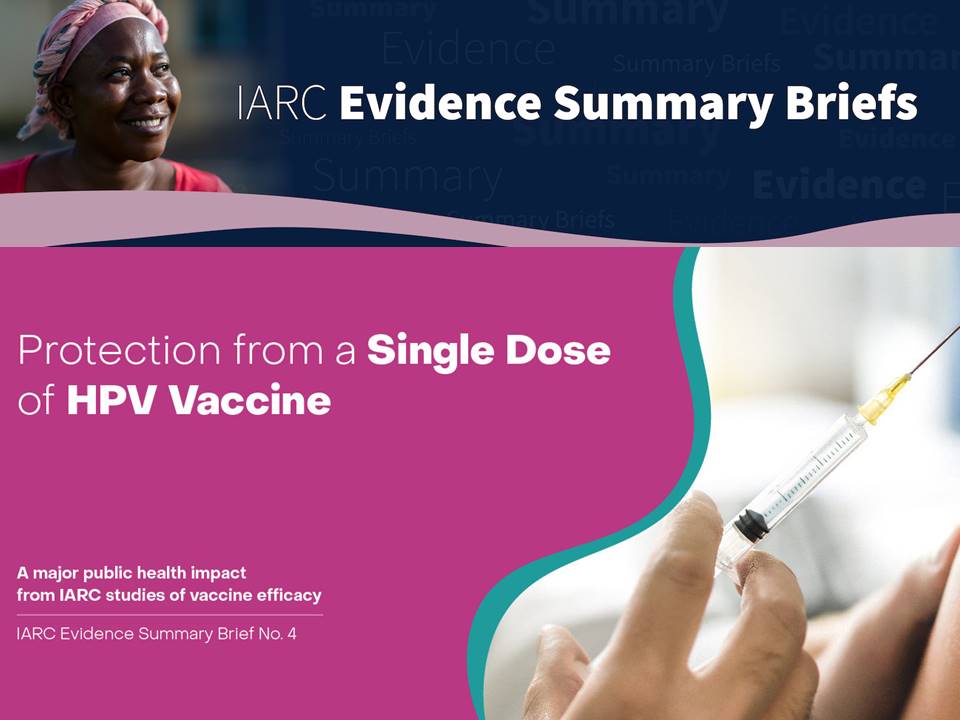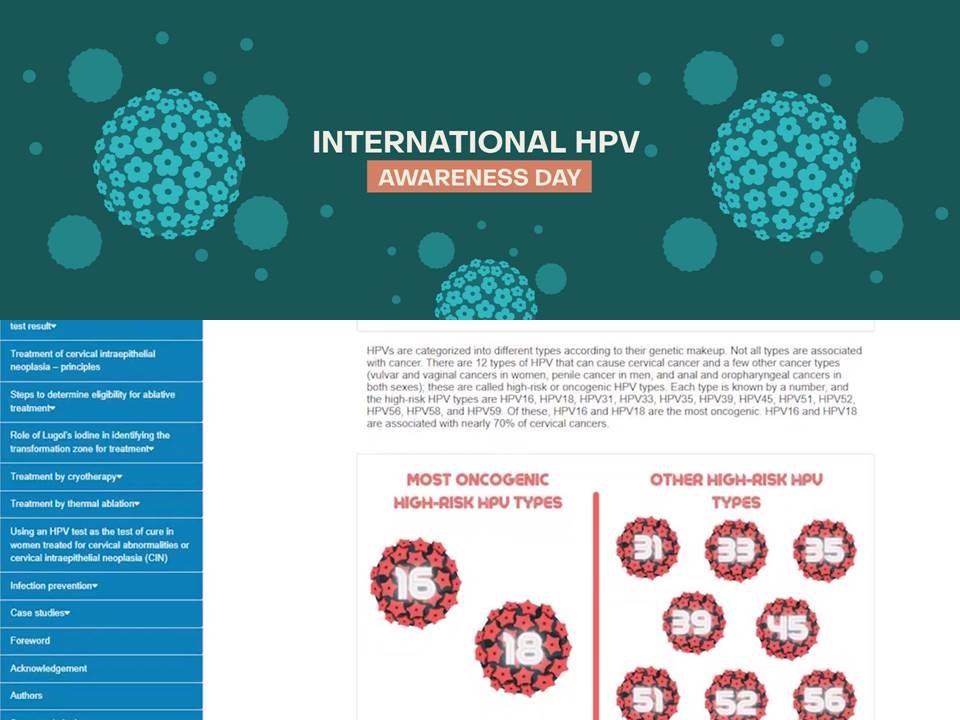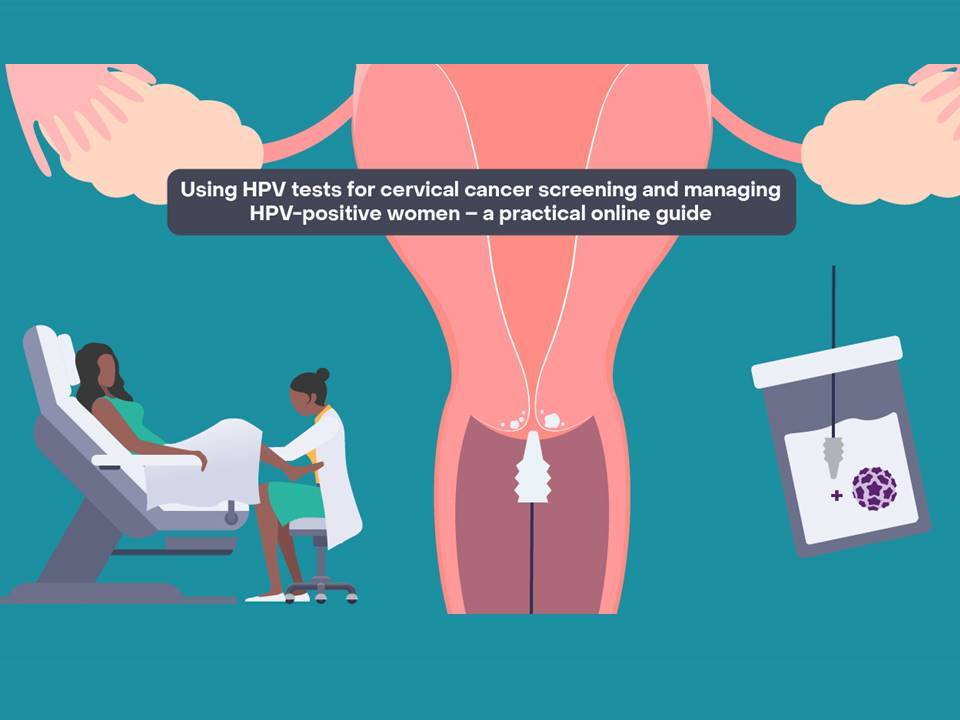Accueil
La principale fonction du Groupe Dépistage du CIRC consiste à produire des données sur l'exactitude, la reproductibilité, l'efficacité, les avantages, les effets néfastes et la rentabilité de diverses interventions de dépistage précoce pour les cancers du sein, du col utérin, et pour les cancers colorectal et buccal, entre autres, en faisant baisser la mortalité et en améliorant la qualité de vie des patients dans différents contextes. Ces données peuvent ensuite être utilisées pour informer et améliorer l'utilisation rationnelle des ressources de soins de santé. L'objectif ultime du Groupe est de guider l'élaboration de politiques de santé publique pour la mise en œuvre du dépistage dans divers contextes de soins de santé, notamment dans les pays à revenu faible ou intermédiaire (PRFI).
Le Groupe SCR mène des études de terrain dans les PRFI pour évaluer diverses méthodes de détection précoce dans la lutte contre les cancers du sein, du col utérin, et les cancers colorectal et buccal. Ces initiatives visent aussi à identifier la façon dont les services de dépistage pourraient être intensifiés par le biais des services de santé publique au niveau local. Le Groupe développe diverses ressources de formation pour catalyser et renforcer les capacités en étroite collaboration avec les institutions nationales et les services de santé du gouvernement. Grâce à son programme de recherche, le Groupe apporte des bases scientifiques factuelles pour soutenir l'élaboration de politiques de détection précoce et de systèmes de santé appropriés pour la prestation de services primaires efficaces. Par exemple, le Groupe a contribué de manière significative à l'évaluation de l'innocuité et de l'efficacité d’un régime de moins de trois doses du vaccin contre le VPH pour la protection contre le cancer du col de l'utérus.
Actualité
 New publication: CanScreen5: a global data repository for breast, cervical, and colorectal cancer screening programmes27/04/2023The inaugural report of the Cancer Screening in Five Continents (CanScreen5) project – the first initiative of its kind to analyse the organization and implementation of breast, cervical, and colorectal cancer screening programmes worldwide – was published today in the journal Nature Medicine. The report, led by scientists at the International Agency for Research on Cancer (IARC), highlights the substantial variability in the organization and performance of cancer screening across countries, provides recommendations for screening programmes to improve the quality and completeness of data, and identifies best practices that can be shared between programmes. Read the IARC Press Release, and the article |
 New HPV vaccines and fewer doses: promising recent developments towards eliminating cervical cancer21/04/2023The International Agency for Research on Cancer (IARC) has released a new IARC Evidence Summary Brief, titled “Protection from a Single Dose of HPV Vaccine: A major public health impact from IARC studies of vaccine efficacy”. This report highlights promising recent developments, led by scientists from IARC and partners, that are huge steps to accelerate the elimination of cervical cancer as a threat to global public health. This IARC Evidence Summary Brief is the fourth in a series of scientific Evidence Summary Briefs published by IARC to call attention to the findings of evidence-based studies in key aspects of cancer prevention. Read the IARC Press Release, and the IARC Evidence Summary Brief No. 4 |
 New video: IARC launches new HPV atlas to support cervical cancer elimination03/03/2023To mark International Human Papillomavirus (HPV) Awareness Day, Dr Partha Basu of the International Agency for Research on Cancer (IARC) introduces a new IARC online atlas designed to help health professionals use HPV tests for cervical cancer screening and manage HPV-positive women. View the video. |
 New publication: Using HPV tests for cervical cancer screening and managing HPV-positive women – a practical online guide03/03/2023To mark International Human Papillomavirus (HPV) Awareness Day, the International Agency for Research on Cancer (IARC) is launching a new IARC atlas, a practical online guide designed to help health professionals use HPV tests for cervical cancer screening and managing HPV-positive women. View the IARC Press release 329, and view the new new HPV atlas. |
 Video: Care4Afrique, a pilot cervical cancer screening programme03/02/2023Dr Farida Selmouni presents the Care4Afrique project and the published report prepared in collaboration with the Lalla Salma Foundation for Cancer Prevention and Treatment (Morocco). Care4Afrique demonstrates that implementation of cervical cancer screening by visual inspection with acetic acid (VIA) followed by immediate treatment of precancerous lesions with thermal ablation in primary health-care services is feasible in resource-constrained settings. View the report and view the video. |
Publications scientifiques
| Gomez Rivas J., Leenen R.C.A., Venderbos L.D.F., Helleman J., de la Parra I., Vasilyeva V., Moreno-Sierra J., Basu P., Chandran A., van den Bergh R.C.N., Collen S., Van Poppel H., Roobol M.J., Beyer K., On Behalf Of The Praise-U Consortium. Navigating through the Controversies and Emerging Paradigms in Early Detection of Prostate Cancer: Bridging the Gap from Classic RCTs to Modern Population-Based Pilot Programs. J Pers Med. 2023 Dec 1;13(12):1677. PMID: 38138904 |
| Hall M.T., Simms K.T., Murray J.M., Keane A., Nguyen D.T.N., Caruana M., Lui G., Kelly H., Eckert L.O., Santesso N., de Sanjose S., Swai E.E., Rangaraj A., Owiredu M.N., Gauvreau C., Demke O., Basu P., Arbyn M., Dalal S., Broutet N., Canfell K. Benefits and harms of cervical screening, triage and treatment strategies in women living with HIV. Nat Med. 2023 Dec;29(12):3059-3066. doi: 10.1038/s41591-023-02601-3. PMID: 38087116 |
| Simms K.T., Keane A., Nguyen D.T.N., Caruana M., Hall M.T., Lui G., Gauvreau C., Demke O., Arbyn M., Basu P., Wentzensen N., Lauby-Secretan B., Ilbawi A., Hutubessy R., Almonte M., De Sanjose S., Kelly H., Dalal S., Eckert L.O., Santesso N., Broutet N., Canfell K. Benefits, harms and cost-effectiveness of cervical screening, triage and treatment strategies for women in the general population. Nat Med. 2023 Dec;29(12):3050-3058. PMID: 38087115 |



